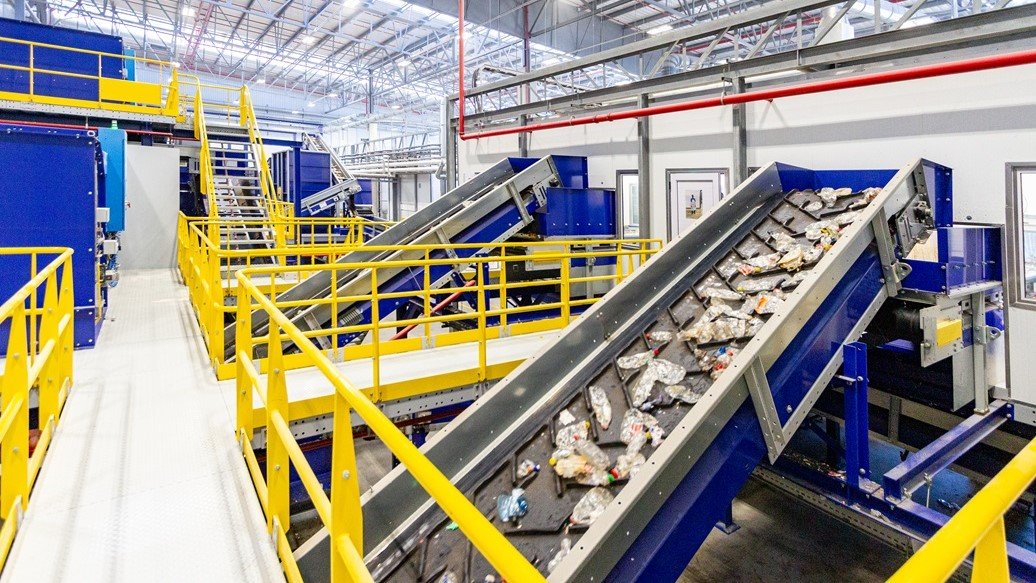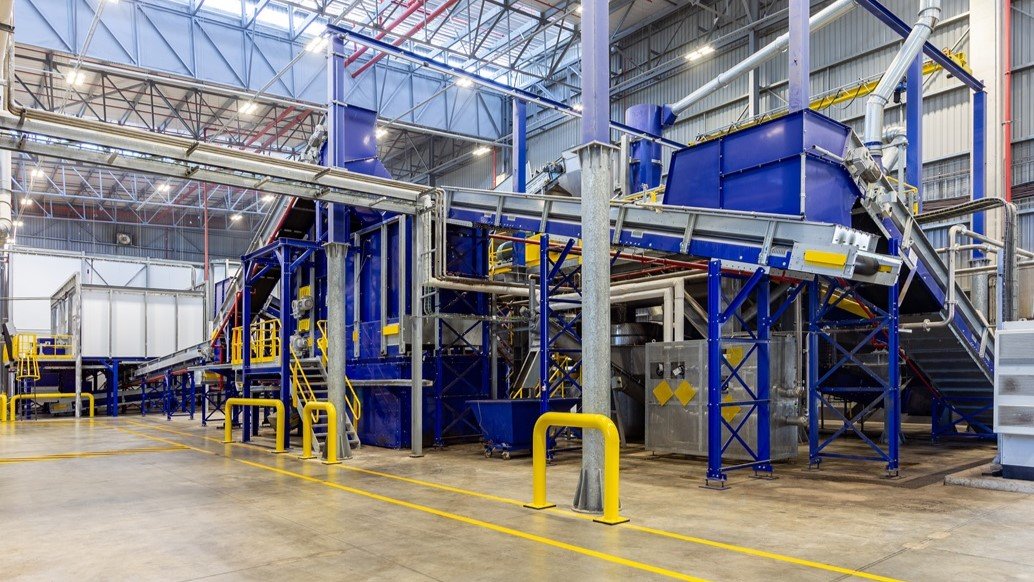PET recycling in South Africa
Next level in South Africa: ALPLArecycling is taking the mechanical recycling of PET bottles to the highest technical level and setting new standards in the market. With state-of-the-art sorting, washing and extrusion facilities, the plant in Ballito, which opened in November 2024, can produce up to 35,000 tonnes of rPET flakes per year. These will be processed into food-safe rPET pellets. ALPLA uses this first-class material to manufacture preforms and bottles for major international brand manufacturers and regional customers at its production plant in Lanseria, which opened in 2022. Ballito operational director Gerhard Meyringer and commercial director Bevlen Sudhu talk about the start-up and the opportunities and challenges in the market.

How did the first few months of operation go?
Gerhard Meyringer: Pretty much according to plan, actually. Once we had met all the specifications step by step with our installation partners, we started the performance tests. We managed to qualify all processes before the end of last year. At the beginning of this year, we already used the produced rPET pellets to manufacture sample preforms for an international customer at ALPLA in Lanseria – from 50 and 100 per cent recycled material. Both variants and the material were then sent to the customer's testing laboratory. There, they met all requirements in extensive tests and even exceeded expectations. Once approved, we started series production.
The plant in Ballito is absolutely state-of-the-art. How do customers perceive the quality and efficiency advantage?
Gerhard Meyringer: At the opening, we gave existing and potential customers first look up material samples from our plant. With the performance tests completed we then had full in specification material samples available. With these our customers carried out initial tests and were thoroughly impressed. Laboratory testing confirmed the high quality. Such a high-quality, food-safe rPET material has not been available in South Africa before, to our knowledge. This opens up completely new possibilities for the beverage and food industry in the country.
What is the current capacity utilisation?
Gerhard Meyringer: We currently produce around the clock in three shifts, five days a week. This enables us to produce around 1,000 tonnes of rPET pellets per month, which corresponds to about 70 per cent of our pellet capacity. Further approvals are imminent. In addition, word is spreading about our role as a technology market leader. We therefore expect significant increases in the second half of the year. We then plan to switch to full operation and manufacture seven days a week.

A genuine circular economy requires commitment and awareness. How can ALPLA contribute to this?
Bevlen Sudhu: Government sets the regulations for sustainability and circularity such as EPR (extended producer responsibility), we in industry set up the industrial production capacity and create demand and incentives for collection. Our flagship plant in Ballito proves that we are serious about this. Although there are no separate collection systems in South Africa and the used bottles are more contaminated, we achieve the same quality as in Europe. We achieve this through first-class technology in sorting, washing and extrusion.
What are currently the biggest challenges in the South African market?
Bevlen Sudhu: Raw materials are currently more difficult to obtain. Used bottles are becoming more expensive. At the same time, far too much of this valuable material is still ending up in landfills. That is a task for the government to increase collection and recycling targets and initiatives. However, if we want to achieve our volumes, we must also continue to invest in collection and tap into new sources. We are achieving the former through stronger strategic partnerships and the latter additionally through imports from other African countries. Our proximity to the port in Durban is an advantage here.
What happens next? Is demand from manufacturers increasing?
Bevlen Sudhu: Yes. Slowly but surely, the national beverage industry is preparing for the future. The government set the framework conditions years ago. In 2022 PET beverage bottles must have contained at least 10 percent recycled material. In 2026, that figure will double to 20 percent. Many are meeting their obligations, while others are lagging behind. Here, too, it is the responsibility of the legislator to ensure fairness. But that is not enough: in the interests of the circular economy and the protection of the climate and the environment, the proportion of recycled material must be continuously increased in the coming years. We have created the conditions and are ready to be a partner for sustainable business.
Do you like our texts? Perhaps even so much that you want to use them in your own media? Then please get in touch with us beforehand!
